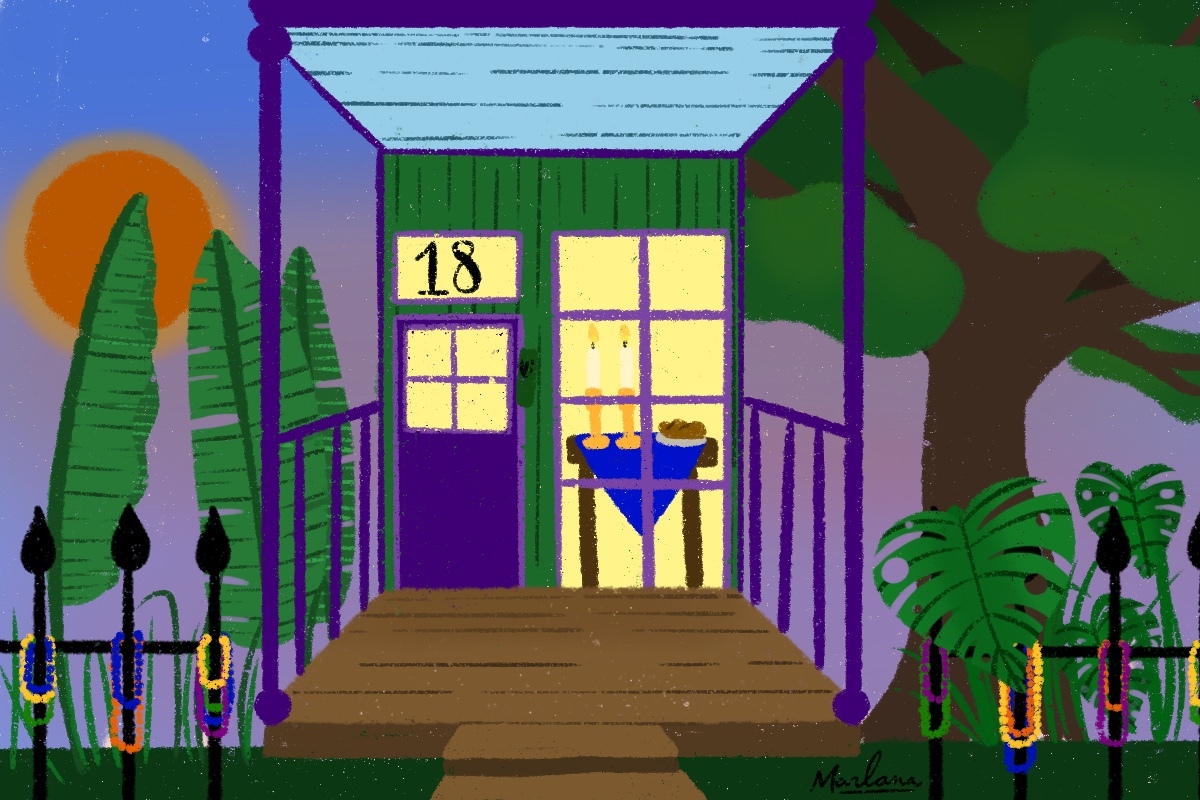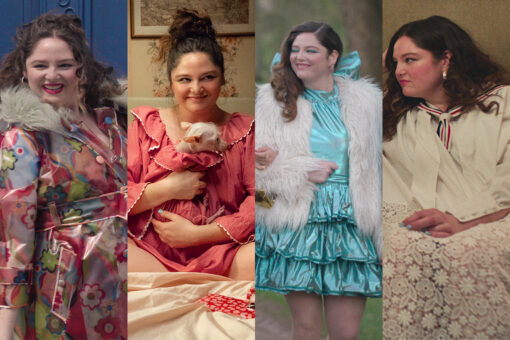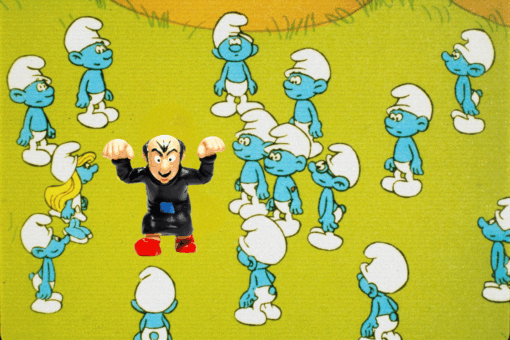My years as a teenager in a Jewish youth group in Ohio were filled with ping-pong conversations: “Are you an American Jew, or a Jewish American?” “Where do Jewish people fit in?” We dug deep into our experiences with casual high school anti-Semitism, our reflections on Israel as a Jewish state, and our own hometown Jewish communities, or lack thereof.
My family belonged to a medium-sized Reform synagogue. Some of my best friends were and still are friends I met in Hebrew school, and my dad was everyone’s favorite Sunday school teacher. The synagogue was progressive in all the predictable ways, jumping on the social justice bandwagon whenever a new issue became a hot topic, but never before. Sunday school and youth groups offered volunteer opportunities like food kitchen shifts and mural painting; of course, there’s nothing inherently wrong with either of those projects, but we never stopped to discuss the systemic problems that led us to create these social justice “band aids.” Questions in my confirmation class about gun violence, gentrification, and Israeli politics were met with raised eyebrows and disregarding eyerolls. I didn’t feel like my questions were valid, or that I held any value in my synagogue’s community, despite my many years of study and then leadership as a youth group board member and teacher.
Israel, of course, was off-limits for questioning. It was the best place, the only place, that any of us should ever hope to live, and how dare anyone question that? After all, making aliyah is a mitzvah. I felt so much peer pressure to connect with Israel that I chose to go there for college and was consistently regretful of my decision. I stayed and finished my undergrad studies there because it felt like I’d made a promise to myself and to my community to be happy there, and everyone had made such a huge deal out of it: my family, my synagogue, and my friends.
College was also when I started to become more radical. I considered my grandfather’s work as a Jewish activist in the Civil Rights Movement. I read deeply on the Civil Rights Movement and drew comparisons between then and now, and thought about my place in creating positive change in the world. I wanted to be proactive, and I wanted to be in a Jewish space that aligned with not only my values, but my family history. And that’s what led me back to New Orleans.
Avodah, the Jewish Service Corps (much like Americorps, with the added bonus of communal living with fellow Avodahniks) brought me here, as it did my sister. But it wasn’t the first time. My sister and I are the fifth generation on our mom’s side of the family to live in New Orleans, though the first to have been born elsewhere. We grew up visiting New Orleans a few times a year and we always felt at home here.
It was a beacon of joy to be in New Orleans, where we would frolic in my aunt’s lush garden barefoot all year round. Leaving gray, snowy Ohio over winter break and reemerging in the green oasis of New Orleans was indescribable. It was eating oysters late into the night without the question of why Jews were eating oysters at all. It was cooking the fish my uncle caught that morning for dinner and staying up all night, listening to my cousin read Harry Potter out loud with all the windows open. It was hugging my grandmother tight after months of being apart.
New Orleans has always been home to me because it’s warm, physically and metaphorically. As a child I felt a flutter in my belly when we landed in Louisiana, and that feeling still exists when I come back from out of town.
Once living here, it took work to feel connected with the local Jewish community — ongoing work that involves considering privilege and opportunity, and grappling with what it means to use my privilege as a white person to make positive change. I think about the working class struggle of my Eastern European ancestors, many of whom became traveling peddlers to make ends meet in southern Mississippi. Partly from hard work and partly from Jewish people’s shift from other to white in American society, my ancestors were able to move up in social class and therefore contribute more time and money into their Jewish communities in both New Orleans and Hattiesburg, Mississippi.
For them and for the continuing generations, being Jewish in the South also meant balancing the outcomes of blending in, assimilating, and standing out. There was a classic summer downpour on the day my parents married in New Orleans. Their Reform synagogue was so deeply steeped in assimilation that they didn’t have a kippah or a chuppah at the ready — they had to dig through dusty boxes in the attic. This version of assimilation had gone so far as to lose important religious items in the choice to blend in.
But things are different now. On Rosh Hashanah, the Torah is paraded around the room to jazz music, played live from the bimah… and it’s not a pearl-clutching moment, it’s just Rosh Hashanah. In fact, there is not one but two Jewish Mardi Gras krewes (parades or walking groups dedicated to a theme or a person that hold their own parade or become a smaller piece of a large parade): Krewe du Jieux and Krewe de Mishegas. Jews and non-Jews alike covet the Krewe du Jieux golden bagel throws. In this way, Jewish culture takes part in one of the most outward displays of Catholic culture in New Orleans in a bright, joyous, communal way.
To me, being Jewish and Southern fit together easily. I see the festive reflection of both cultures when my synagogue hosts Jazz Fest Shabbat and allows congregants to use the bathrooms during parades (perks of joining a synagogue on the parade route!). I see it when elders in our Jewish community hear my last name and regale me and my sister with rich stories about our grandfather’s quick wit and our grandmother’s acts of kindness. These stories reach us often in Jewish settings like at synagogue or a seder, but oftentimes too in the thick of a classic New Orleans moment — in line to get a sno-ball, on the street at a parade, at the concession stand in a movie theater.
Sadly, there are still days when I choose not to wear my Magen David necklace because I’m just not in the mood to answer questions while choosing a pint of ice cream at Walgreens. What is that? Why do you wear it? What do you mean, are you some kind of Christian still? But you still believe in Jesus, right? The questions are rooted in a lack of awareness, but I can’t let go of the skepticism about my insistence in the existence of a vibrant Jewish community in New Orleans. I want the richness of the blended cultures to be shared. Even more deeply, I desire understanding: for people to see that I am who I am because of the way my Judaism relates and coexists with my Southerness. I owe that to my great-grandparents. That, and to live the life that in many ways, they fought for me to have.
I’ve been asked why it wouldn’t just be easier to live somewhere else — somewhere where there are fewer questions, more representation, more synagogues, more Jews. But the Jewish experience has never been easy, and I don’t want to leave behind a community that has fought so hard to create a space for ourselves. When I’m asked why I would stay in the south, it feels like I’m being asked why don’t you just go home? It makes my chest tighten. Because no matter how much I try to explain, no matter how hard I fight to prove that I am truly happy here, the resounding feeling I get is that people assume that since I’m Jewish, I must not really be at home here. I can’t think of any more ways to say that not only does this feel like home, it is my home. It has been home for generations of my family, and it is for me, too.
In an other-worldly way, New Orleans is magnetic to Jewish people and non-Jewish people alike. We have a common idea of what community means, grounded in honoring the histories of the cultures that celebrate both differences and similarities. I live here because I feel most myself in New Orleans, which means that I also feel most Jewish here. I see my people at Mardi Gras and at synagogue. I love oysters and I love baking challah for my neighbors. I might still be figuring out how much I want to blend in, stand out, or fit in, but of all places, I like doing that in New Orleans.
Header image by .



